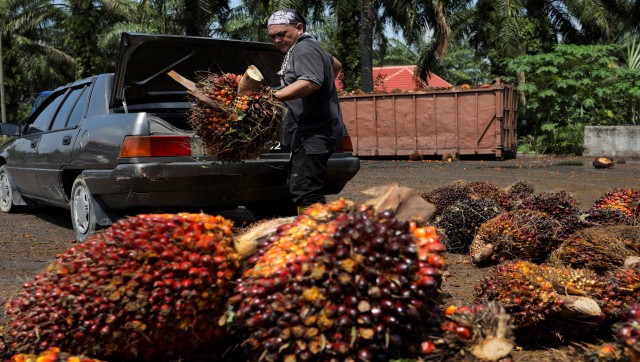Malaysia will expand palm oil exports to China by 500,000 tonnes per year in response to new European Union deforestation regulations, a top minister said AFP on Monday. This year, the trade bloc enacted new laws prohibiting items from deforested territory, putting its weight behind the battle against climate change and environmental degradation. Environmentalists accuse palm oil of fueling the loss of rainforests in Malaysia and Indonesia, which generate 85 per cent of world supply. However, the EU laws have sparked outrage in producing nations, with Malaysia and Indonesia also contesting the decision. Malaysia’s Plantation and Commodities Minister Fadillah Yusof told AFP that his country was now upping exports to China, a major importer of the commodity. “China’s import of palm oil and palm-based products from Malaysia was 3.14 million tonnes in 2022,” he said. That will grow by the end of the year or early next year with “additional uptakes of 500,000 tons of palm oil” by Beijing, he said. The increase is the result of a deal between Malaysian-headquartered palm oil product firm Sime Darby Oils International and Chinese state-owned Guangxi Beibu Gulf International Port Group. It will “definitely” help Malaysia counter European curbs, he added. “Chinese importers are buying high value-added downstream palm products produced from Malaysia,” he said. The edible oil is used in foods such as cakes, chocolate and margarine, as well as cosmetics, soap and shampoo. Malaysian palm oil exports to China are now expected to hit 3.2 million metric tons for 2023, Yusof said. But the country has “no intention” of turning away from the European Union, currently the second largest importer of Malaysian palm oil after India, and just ahead of China. He slammed the regulations as a “trade barrier which curtails free and non-discriminatory market access”, but added Kuala Lumpur still hopes the bloc’s stand will “evolve over time”. Malaysian and Indonesian officials are actively lobbying Brussels over the rules, which do not come into full effect for 18 months, to give producers time to work out compliance. Representatives from the two countries are due to meet EU officials in Kuala Lumpur for new discussions in December, Yusof confirmed.
The increase is the result of a deal between Malaysian-headquartered palm oil product firm Sime Darby Oils International and Chinese state-owned Guangxi Beibu Gulf International Port Group
Advertisement
End of Article


)

)
)
)
)
)
)
)
)



